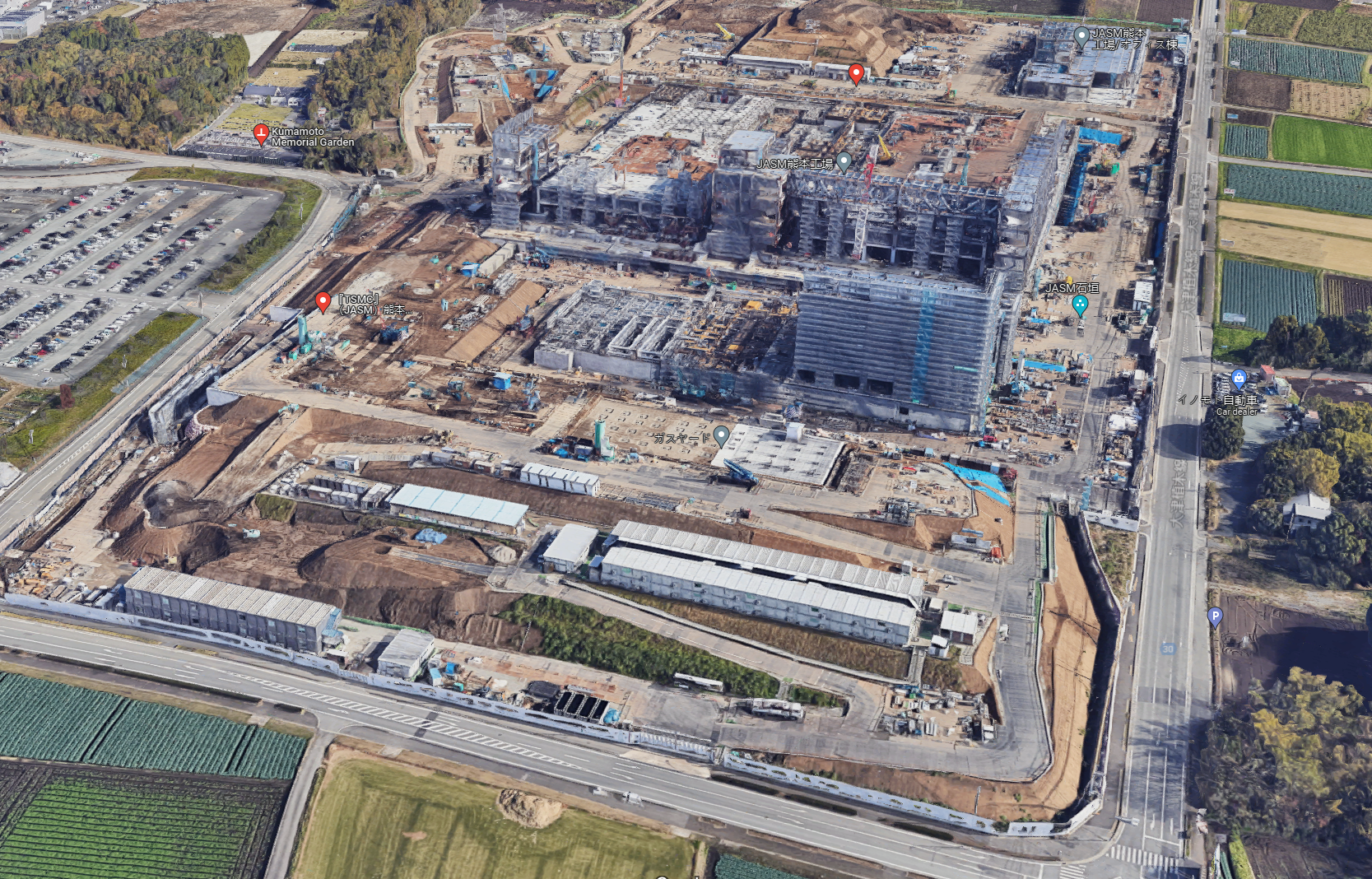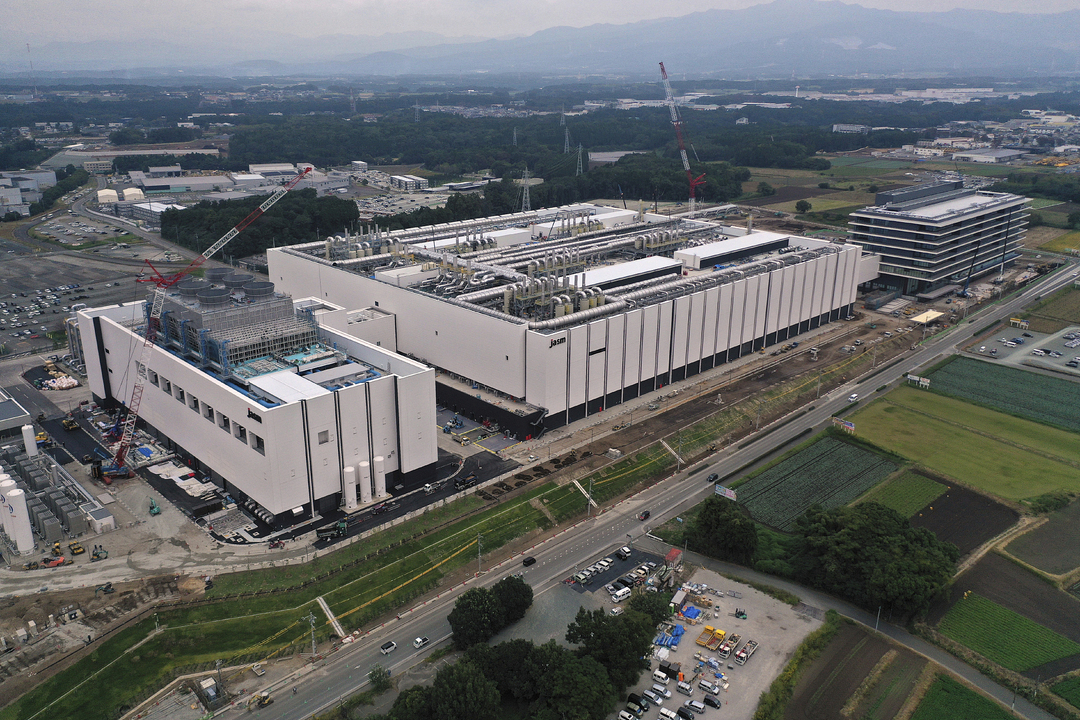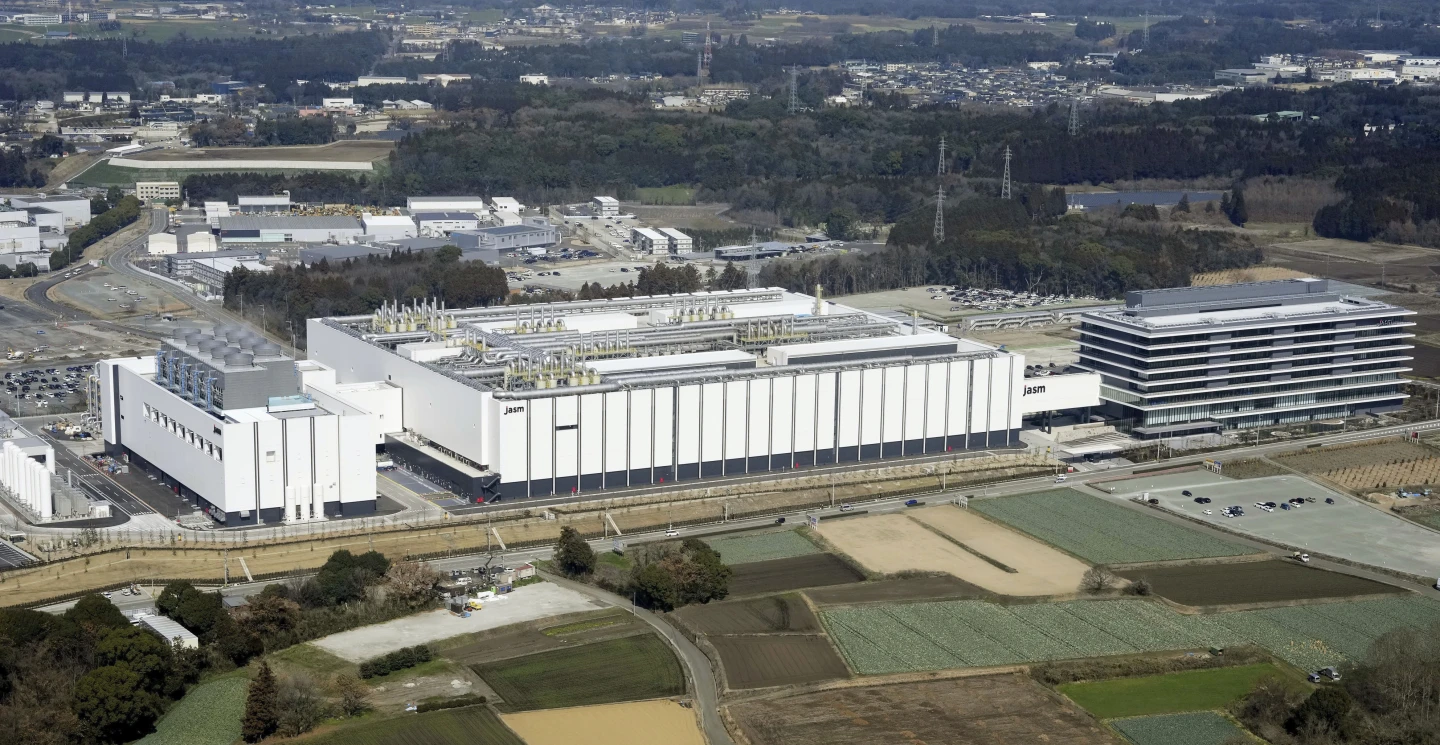https://www.tweaktown.com/news/9642...ys-site-is-called-nightless-castle/index.html
Man, I don't think I could do a 24h work day anymore...
Man, I don't think I could do a 24h work day anymore...
Follow along with the video below to see how to install our site as a web app on your home screen.
Note: This feature may not be available in some browsers.



i would assume it looks similar to the other tsmc plants.Of course the really cool stuff is inside, but I don't think we'll get to see much of that
https://www.tweaktown.com/news/9642...ys-site-is-called-nightless-castle/index.html
Man, I don't think I could do a 24h work day anymore...
ive was thinking the same thing.Did they really mean that the same people were there for 24 hours, or that it was a 24/7 worksite in 2 or 3 shifts? Maybe something was lost in translation?
That said, it is Japan. They don't exactly believe in work-life balance.
Same people in some cases not all, TSMC doesn’t understand work life and insist critical knowledge or skill holders be available at all times. Once the plant is in operation they expect 18h work days with 24/7/365.25 availability. It’s one of the major contentions surrounding the Arizona and Germany fabs.Did they really mean that the same people were there for 24 hours, or that it was a 24/7 worksite in 2 or 3 shifts? Maybe something was lost in translation?
That said, it is Japan. They don't exactly believe in work-life balance.
Same people in some cases not all, TSMC doesn’t understand work life and insist critical knowledge or skill holders be available at all times. Once the plant is in operation they expect 18h work days with 24/7/365.25 availability. It’s one of the major contentions surrounding the Arizona and Germany fabs.
But they were paying extra… instead of what works out to about $200 a day (8-10h) they were paying closer to $350 for the ungodly hours. Either way they got it done on time and under budget while they let the Arizona plant rot.
350$ for 18H shifts and 24/7 availability for a skilled worker? do people actually agree to this? i it was China or India , ok i guess , but for an expensive country like Japan ? crazy.Same people in some cases not all, TSMC doesn’t understand work life and insist critical knowledge or skill holders be available at all times. Once the plant is in operation they expect 18h work days with 24/7/365.25 availability. It’s one of the major contentions surrounding the Arizona and Germany fabs.
But they were paying extra… instead of what works out to about $200 a day (8-10h) they were paying closer to $350 for the ungodly hours. Either way they got it done on time and under budget while they let the Arizona plant rot.
Right? $350 a day is nothing lol350$ for 18H shifts and 24/7 availability for a skilled worker? do people actually agree to this? i it was China or India , ok i guess , but for an expensive country like Japan ? crazy.
Better than the standard $200 a day, granted you are working 2-3x the hours but hey... it worked?Right? $350 a day is nothing lol
$77k/yr assuming only 220 paid work days. Even in the US, that's pretty good for assembly work.Right? $350 a day is nothing lol
If they are doing 18+hour work days no way they are only working 220 work days, closer to 300 I'm guessing$77k/yr assuming only 220 paid work days. Even in the US, that's pretty good for assembly work.
$77k/yr assuming only 220 paid work days. Even in the US, that's pretty good for assembly work.
If they are doing 18+hour work days no way they are only working 220 work days, closer to 300 I'm guessing
“When we reported our quotation in the beginning, the client replied: ‘Are you insane?’ But that’s just the way it is,” Mr. Yang said.How do they expect a subject matter expert on their 18th hour of the workday to make good decisions? Maybe that explains some of these catastrophic plant shutdowns resulting in the loss of millions (billions?) of dollars worth of in-process wafers we hear about every now and then.
It would seem much more effective to cross-train 3 individuals and run three eight hour shifts. The employees would be happier, and the company would probably benefit from lack of seep deprivation-related mistakes.
People are not machines....
Ummm...the last time I looked at many places in the US, $77k/yr is considered about 1 step above poverty level$77k/yr assuming only 220 paid work days. Even in the US, that's pretty good for assembly work.
This may come as a shock, but factory work isn't something that is done remotely. $77k is above the median HH income in Phoenix (where the factory is), and it is significantly above median in many of the commutable areas around the factory.Ummm...the last time I looked at many places in the US, $77k/yr is considered about 1 step above poverty level
That's entirely possible. The 220 day target gives a low estimate of their pay. If they're working 5 days/wk, taking 10 holidays, 2 sick days, and 10 vacation days, then they're working 239 days/yr and getting $83,650. That's even better pay.If they are doing 18+hour work days no way they are only working 220 work days, closer to 300 I'm guessing
“When we reported our quotation in the beginning, the client replied: ‘Are you insane?’ But that’s just the way it is,” Mr. Yang said.
Some TSMC engineers said they were concerned about how the Arizona factory would blend American and Taiwanese employees. In Taiwan, engineers work long hours and weekend shifts, joking that they “sell liver” to work for the chip manufacturer, they said. Such sacrifices may be less appealing to employees in the United States, they said.
Wayne Chiu, an engineer who left TSMC last year, said he had thought about joining the company’s overseas expansion drive but lost interest after realizing he would likely have to pick up the slack for U.S. hires.
“The most difficult thing about wafer manufacturing is not technology,” he said. “The most difficult thing is personnel management. Americans are the worst at this, because Americans are the most difficult to manage.”
Three TSMC employees who trained American engineers said it was difficult to standardize practices among them. While Taiwanese workers unquestioningly follow what they are told to do, American employees challenged managers, questioning if there might be better methods, they said.
Some Americans struggled when assigned multiple tasks, sometimes rejecting a new assignment instead of working harder to complete everything, one TSMC engineer in Arizona said. Taiwanese workers believe that those who work in Phoenix will shoulder greater responsibilities than their American colleagues, eight employees said.
https://www.nytimes.com/2023/02/22/technology/tsmc-arizona-factory-tensions.html
You're not wrong but according to their whole country, we are wrong.
For something as process critical as wafer manufacturing they are right. You can't have any questioning or deviation from procedure. You have to execute the process exactly as written and not think you know better.
You're not wrong, but following procedure without deviation makes you a robot, not an engineer. Unless it's like a train engineer, and not an electrical or chemical or process engineer. Or maybe it's just ye olde title inflation? But yeah, I'm not surprised american engineering talent is hard to manage to do work where they're just supposed to follow a script from overseas; that's not what engineering education teaches us to expect.
Definitely culture clash there.
Engineers are not typically the ones running the process. They develop it, validate (test) it, and then hand it off to process control/manufacturing folks.
It's the production operators and managers who are the ones who have to execute procedure without deviation.
To your point - I am very easy to manage. I am very difficult to force into a situation where I surrender all joy in life to eat.Sure, but the quote is all about US engineers being a pain in the ass to manage. Which I'm sure they are; I know I'm a pain in the ass to manage, and I've got an engineering degree.
To your point - I am very easy to manage. I am very difficult to force into a situation where I surrender all joy in life to eat.
Sony is an investor and a customer for TSMC's new plant in Japan; with the new fab plant getting up and running so quickly in Japan, that wouldn't necessarily be done in other countries. Why? TSMC had efficient government support, strict construction timetables, and a low-cost workforce that was flooding the site and then working 24 hours a day, 7 days a week.
It's a not-so-subtle dig at the Arizona plant, TSMC can't hold onto a contractor, and Intel keeps outbidding them. There are only so many people in the area capable of working on a project of that size and Intel gobbled them all up.BS! You want a 24/7 construction project in US it's simple you hire 4 shifts. 3x 12s one week, 4x 12s the next.
You got the expensive country like Japan, right. That's why people are willing to work themselves to death - they have to.350$ for 18H shifts and 24/7 availability for a skilled worker? do people actually agree to this? i it was China or India , ok i guess , but for an expensive country like Japan ? crazy.
That and their birth rate didn't keep up with what was needed to maintain their pension plans.You got the expensive country like Japan, right. That's why people are willing to work themselves to death - they have to.
Japan suffering from highest debt / GDP in the world - nearly double what the US has.
Spending has consequences...